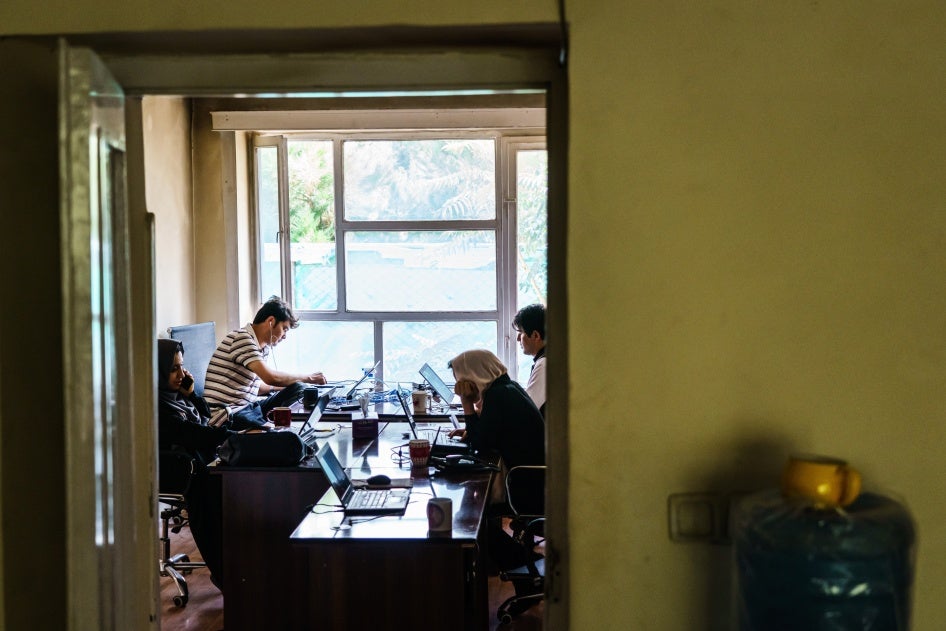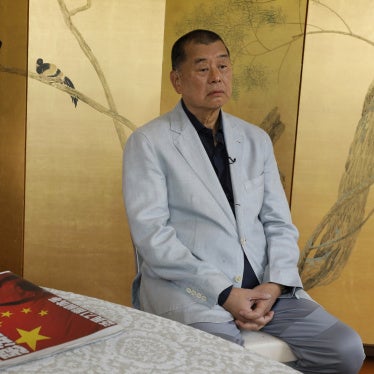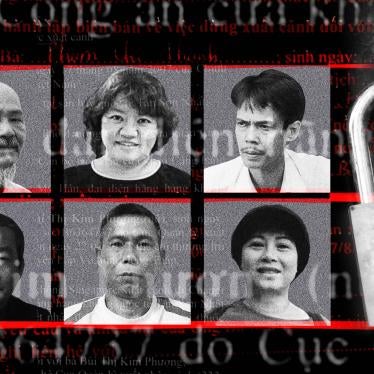(Taipei) – Today, marking World Press Freedom Day, Human Rights Press Awards in Asia announced the 2024 winners and runners-up. The seven categories of awards are administered by Human Rights Watch, the Walter Cronkite School of Journalism and Mass Communication at Arizona State University, and the foreign correspondents clubs in both Thailand and Taiwan.
Among the top winners are reporting on the rising number of suicides among Afghan women living under abusive Taliban rule; the persecution of religious minorities in Myanmar; and the Chinese government’s treatment of White Paper protesters who stood up against Covid-19 lockdowns.
“The Human Rights Press Awards recognize journalists who are uncovering some of the most pressing rights issues in Asia,” said Tirana Hassan, executive director at Human Rights Watch. “In an era in which rising authoritarianism generates autocratic leaders and mass disinformation, the role of journalists in exposing the truth is more critical than ever. We are thrilled to honor these courageous reporters.”
The seven categories of awards include the newly created “Newsrooms in Exile” category, as well as commentary, print, photography, video, audio, and multimedia. The winners will be honored at a ceremony in Taipei hosted by the Taiwan Foreign Correspondents’ Club (TFCC) on May 10, 2024.
“We are honored once again to be administering the Human Rights Press Awards,” said Dr. Battinto L. Batts, Jr., dean of the Walter Cronkite School of Journalism and Mass Communication. “As part of our Cronkite Global Initiatives, we are proud to help recognize outstanding human rights journalism throughout Asia and the world.”
“It’s no coincidence that many winning entries are examples of brave journalism from Afghanistan, Hong Kong, and Myanmar, places where reporting has become increasingly difficult and dangerous,” said Thompson Chau, president of the Taiwan Foreign Correspondents’ Club. “The TFCC is honored to host the award ceremony in Taipei. Taiwan is an extraordinary place for a growing number of Asia-focused correspondents to live and work.”
Frontier Myanmar and Zan Times shared the top prize in the inaugural “Newsroom in Exile” category for their reporting on Myanmar and Afghanistan, respectively. Frontier Myanmar’s report uncovered the Myanmar military’s oppression of the Bayingyi, Roman Catholics of Portuguese descent. Zan Times gathered data illustrating the dire reality of the growing numbers of Afghan women and girls choosing death as preferable to living under Taliban repression.
“We're increasingly seeing media under threat in countries across Southeast Asia, which is why the new Human Rights Press Awards category for media in exile is so critically important,” said Phil Robertson, program committee chair at the Foreign Correspondents Club of Thailand (FCCT). “In countries such as Afghanistan and Myanmar, there needs to be greater recognition of journalists who bravely report human rights stories from the homeland they were forced to flee, and the FCCT is proud to be a part of that effort.”
The award for multimedia went to Al Jazeera for its piece, “‘If I die, I die’: Pakistan's death-trap route to Europe,” documenting the dangerous journey young Pakistani men undertake in search of work in Europe and the suffering of their families left behind.
The Initium won the investigative reporting prize in Chinese for its series on the anniversary of the White Paper Protest, featuring the lives and struggles of those who protested China’s “zero-Covid” lockdown policies in the wake of the pandemic.
The Guardian won the investigative reporting prize in English for its work, “Revealed: Amazon linked to trafficking of workers in Saudi Arabia,” which exposed the plight of Nepali migrant workers enduring forced labor and discrimination in Saudi Arabia. The reporting revealed the complicity of major multinational corporations that fail to police their supply chains.
Reporting on the Myanmar military’s airstrikes; abuses by the Bangladeshi elite police unit, the Rapid Action Battalion (RAB); issues facing the LGBT community in Hong Kong; and a global private hospital group embroiled in a “cash for kidneys” racket all won honorable mentions.
A complete list of winners is available here: https://humanrightspressawards.org/2024-winners









